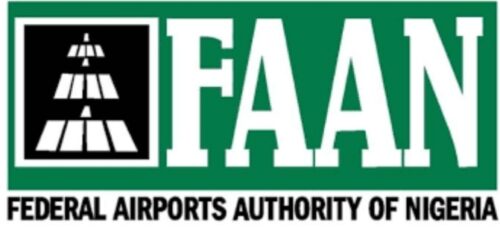Customs Commence Zero Duty Charge on Importation of Essential Commodities

The Comptroller General, Nigeria Customs Service, Bashir Adewale Adeniyi, has reaffirmed the commitment of the Service towards streamlining processes to support the President Bola Tinubu led food security initiative.
Adeniyi made this known on Tuesday during the official launch of a book, “Impactful Public Relations in Customs Management” which held in Abuja.
The book launch coincided with the 2nd Economic Confidential Annual Lecture, where the Comptroller-General further stressed the commitment of the Service to addressing food security challenges through targeted measures to intensify agricultural production.
He said: “In line with our earlier highlighted vast agricultural potential, the government is actively providing incentives to farmers to increase food production, among other measures.
“There is an ambitious target to cultivate more than 10 million hectares of land for food production. This initiative not only aims to boost our food security but also to leverage our abundant arable land, only 40% of which is currently cultivated.”
He also noted that the Federal Government has taken bold steps to address the immediate challenge of high food prices by removing tariffs and other import duties on key staples such as rice, wheat, maize, and sorghum for six months.
As a follow up to this commitment, the Nigeria Customs Service (NCS), yesterday, issued a statement outlining the Federal government’s resolve to allow duty free imports for some food items effective today, August 15, 2024.
The statement read: “Drawing from the Presidential directives aimed at alleviating the hardship faced by Nigerians due to high prices of essential food items, the Nigeria Customs Service (NCS) is pleased to announce that His Excellency, the President of the Federal Republic of Nigeria, Bola Ahmed Tinubu (GCFR) through the Honourable Minister of Finance and the Coordinating Minister of the Economy, Olawale Edun, has approved the regulation for the implementation of a Zero Percent Duty Rate (0%) and Value Added Tax (VAT) exemption on selected basic food items. This policy will run until 31st December 2024.
“This measure aims to mitigate the high cost of food items in the Nigerian market by making essential commodities more affordable for citizens.
“The initiative is part of the government’s broader efforts to address food security challenges and ensure that basic foodstuffs are accessible to all Nigerians.
“However, it is important to emphasise that while this temporary measure is intended to address current hardships, it does not undermine the long-term strategies put in place to safeguard local Farmers and protect Manufacturers.
“It is pertinent to note that the implementation of this policy will focus on addressing the national supply gap.
“To participate in the zero-duty importation of basic food items, a company must be incorporated in Nigeria and have been operational for at least five years.
“It must have filed annual returns and financial statements and paid taxes and statutory payroll obligations for the past five years.
“Companies importing husked brown rice, grain sorghum, or millet need to own a milling plant with a capacity of at least 100 tons per day, operated for at least four years, and have enough farmland for cultivation.
“Those importing maize, wheat, or beans must be agricultural companies with sufficient farmland or feed mills/agro-processing companies with an out-grower network for cultivation.
“The basic food items eligible for the zero percent duty rate are as follows: (S/N, Item Description, ECOWAS CET, H.S. Code, Previous Duty Rate + Levy, New Duty Rate).
I. Husked Brown Rice with ECOWAS CET1006 and HS Code 20.00.00, which previously has a duty of 30% with Levy , but now 0% duty and no levy.
II. Grain Sorghum and Other with ECOWAS CET1007 and HS Code 90.00.00, which previously has 5% duty , but now 0% duty.
III. Millet and Other with ECOWAS CET1008 and HS Code 29.00.00, which previously has a duty of 5%, but now 0% duty.
IV. Maize and Other with ECOWAS CET1005 and HS Code 90.00.00, which previously has a duty of 5%, but now 0% duty.
V. Wheat and Other with ECOWAS CET1001 and HS Code 19.00.00, which previously has 20% duty, but now 0% duty.
VI. While Beans with ECOWAS CET 0713.31 and HS Code 90.00, which previously attracts 20% duty, but now is 0% duty.
“The Federal Ministry of Finance will periodically provide the NCS with a list of importers and their approved quotas to facilitate the importation of these basic food items within the framework of this policy.
“The policy requires that at least 75% of imported items be sold through recognised commodities exchanges, with all transactions and storage recorded.
” Companies must keep comprehensive records of all related activities, which the government can request for compliance verification.
“If a company fails to meet its obligations under the import authorisation, it will lose all waivers and must pay the applicable VAT, levies, and import duties.
“This penalty also applies if the company exports the imported items in their original or processed form outside Nigeria.
“The Nigeria Customs Service remains committed to supporting government policies to enhance food security and promote economic stability.
“The Service urges all stakeholders to cooperate fully in implementing this initiative for the benefit of all Nigerians.”






